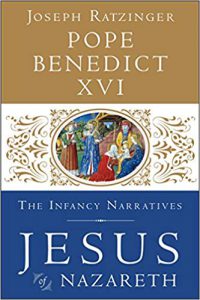This is the season of Jewish Passover and Christian Easter (or Pascha.) This is the time when Jews recall how God passed over their homes and spared their first born, led them dry shod across the Red Sea and saved them from slavery in Egypt. It is the time when Christians remember the paschal mysteries of Jesus who rescued us from slavery to sin and death.
At the core of both feasts is the Exodus from Egypt. It is a defining moment for Israel. It is also foundational for Christians. Christians believe that Jesus is the new Moses, the prophet Moses spoke about in Deuteronomy 18:15. The Christian understanding of the the death and resurrection of Jesus Christ is intelligible only in the light of the Exodus and the passover.
But did the Exodus really happen? A number of people including rabbis and scholars have argued that it did not. Some argue that the Israelites were never in Egypt and that it is only a myth.

But in this Tikvah Podcast Jonathan Silver interviews the biblical scholar and orthodox rabbi, Joshua Berman who argues that that the Exodus did in fact happen. The interview is based on an article Rabbi Berman wrote in Mosaic Magazine: Was There an Exodus?
Whether the Exodus happened or not is not a trivial matter. As Rabbi Joshua Berman notes:
This is the sole driving force behind the opening line of the Ten Commandments: “I am the Lord your God who took you out of Egypt, the house of bondage.” … [If there] were there no exodus, nearly all of Judaism’s sacred texts over the centuries would have perpetuated a great lie. In response to the question posed by the child at the seder meal, “How is this night different from all other nights?” a father would be obliged to reply, “Really, my child, there’s no difference.” And indeed, at many a contemporary seder table, a new figure has emerged: next to the son who knows not how to ask, sits the father who knows not how to answer.
One of the arguments against the Exodus is that there are no Egyptian sources about the Israelites being in, or leaving Egypt. While it is the case that only a small portion of Egyptian sources have been discovered, Berman does not want to rely on the argument that there may be sources that we don’t yet have. Instead he suggests we start with Egyptian sources to see if there exist any references to those sources in the Bible. When we do this, he argues, we see a number of interesting things that make a strong case that the Israelites were indeed in Egypt.
With a Mighty Hand and an Outstretched Arm
One of the examples Berman gives is the phrase that describes how God saved the Israelites from Egypt “with a mighty hand and an outstretched arm.” He says that this phrase is only really found in the Exodus story in the Hebrew Bible. Berman argues that this phrasing is not only influenced by Egypt, it is a purposeful use of an Egyptian phrase to contrast and “mock” the power of the Pharoah as insignificant compared to the power God. Berman says that the “Torah has appropriated the rhetoric of the pharaohs as a tale against the pharaohs themselves.” He argues that this is the “logic of approriation” and the use of a familiar image of human power to describe the ineffable profound power of God.
 Benedict XVI makes a similar point in an address to the Synod of Bishops and Jesus of Nazareth, The Infancy Narratives Benedict points out that Luke and the other Gospel writers do a similar type of appropriation. The Greek word, Evangelium, which Christians understand as a synonym for the Gospels was in fact a purposeful “appropriation” of the language of Caesar. Benedict writes that the The word “Evangelium” “euangelisasthai” has a long history. It appears in Homer meaning good news and in the second part of Isaiah signifying that God had not forgotten his people. But in the New Testament it not only echoes Isaiah, it also intentionally reflects the meaning of the word in imperial Rome. Benedict writes that in the Roman empire,
Benedict XVI makes a similar point in an address to the Synod of Bishops and Jesus of Nazareth, The Infancy Narratives Benedict points out that Luke and the other Gospel writers do a similar type of appropriation. The Greek word, Evangelium, which Christians understand as a synonym for the Gospels was in fact a purposeful “appropriation” of the language of Caesar. Benedict writes that the The word “Evangelium” “euangelisasthai” has a long history. It appears in Homer meaning good news and in the second part of Isaiah signifying that God had not forgotten his people. But in the New Testament it not only echoes Isaiah, it also intentionally reflects the meaning of the word in imperial Rome. Benedict writes that in the Roman empire,
the term “Evangelium” means a word, a message that comes from the Emperor. Then the message of the Emperor — as such — brings good: it is the renewal of the world, it is salvation. It is an imperial message and as such a message of strength and power, it is a message of salvation, renewal and health.
The New Testament accepts this situation. St Luke explicitly compares the Emperor Augustus with the Child born in Bethlehem: “Evangelium” — he says — yes, it is the Emperor’s word, the true Emperor of the world. The true Emperor of the world has made himself heard, he speaks to us. And this fact, in itself, is redemption because the great suffering of man — then, as now — is this: behind the silence of the universe, behind the clouds of history, is or isn’t there a God? And, if this God is there, does he know us, does he have anything to do with us? Is this God good, then does the reality of good have any power in the world or not? This question is as relevant today as it was then. Many people wonder: is God just a hypothesis or not? Is he a reality or not? Why do we not hear him? “Gospel” means: God has broken his silence, God has spoken, God exists. This fact in itself is salvation: God knows us, God loves us, he has entered into history. Jesus is his Word, God with us, God showing us that he loves us, that he suffers with us until death and rises again. This is the Gospel. God has spoken, he is no longer the great unknown, but has shown himself and this is salvation.
One of the interesting parallels with Benedict’s address and the Seder Liturgy is the role of questions. Why is this night different from any other night? “Is God a reality or not?” “Does he have anything to do with us?” Knowing how to answer is crucial.
For Jews and Christians, the Exodus is the manifestation of God who hears the voice of His people and comes to save them. For Christians it is prefiguring of the the Evangelium of Jesus and the pascal mysteries. The reality of Exodus does indeed matter.
There is much more going on in the podcast including a comparison between modern historical texts and ancient texts like Herodotus, Tacitus, and the Hebrew Bible. You can listen to this and other interesting interviews on the Tikvah Podcast including one from Acton University lecturer, Rabbi Mitchell Rocklin on Jewish Christian Relations

